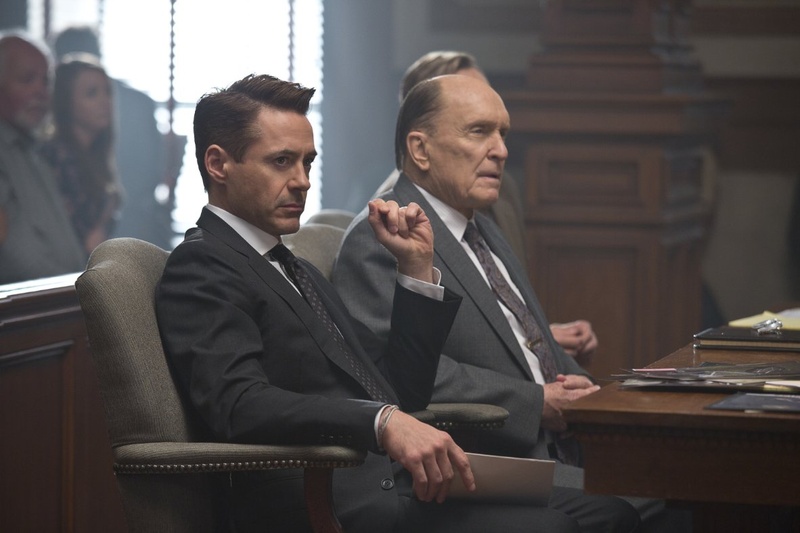“The Judge” is a movie that could have been released 10 or 20 years ago. It tells a classic, if not overused tale—the inevitable clash between the ambitious son who has always craved the love and respect of his father and the patriarch who has always been proud of his son but could never bring himself to express this love. There are no paradigm-shifting twists or flashy gimmicks. “The Judge” tells an old story the old-fashioned way, and that’s why it’s so refreshing.
{shortcode-a2416fa93796cd287565551fe2ec6d17221af630}
Robert Downey Jr. stars in the film as Hank Palmer, who reads like many of Downey Jr.’s recent characters—a misanthropic and insensitive but extremely talented defense attorney who isn’t afraid to say, “Innocent people can’t afford me.” Unsurprisingly, Hank is also not a family man. He is getting divorced from his wife, and the death of his mother brings him back to his small-town childhood home of Carlinville, Indiana for the first time in many years. Fate, however, conspires to bring Hank out of his bubble. “Judge” Joseph Palmer, Hank’s father (Robert Duvall), is accused of murder, and the film follows the uneasy partnership that ensues between father and son, client and counsel.
“The Judge” possesses a truly stellar ensemble cast. Robert Duvall, at the ripe age of 83, shows that there is still plenty of Lt. Colonel Kilgore left in him, and Downey Jr. matches Duvall blow for blow in his first truly dramatic role since 2009’s “The Soloist.” Both give stunning performances that show off the entire spectrum from subtlety to explosiveness. The seamless chemistry between the two actors comes to a climax in a chill-inducing confrontation which confirms that, indeed, this is a battle of true cinematic heavyweights.
Supporting the two Roberts is a remarkable lineup of veterans, including Billy Bob Thornton, Vera Farmiga and Vincent D’Onofrio. Dax Shepard also proves to be an unexpected asset for the film as a hilariously incompetent beta-male lawyer who is far more knowledgeable about antiques than the law. Shepard’s character is mostly comic relief, but most of the supporting characters are just as well-rounded as the two leading men, with complete and meaningful stories of their own that refuse to be defined briefly or simply. Such depth of characterization throughout the cast is both hard to come by and crucial for a character-centered drama.
Director David Dobkin does an admirable job of wrapping the fabric of the film around his all-star lineup of actors, which is somewhat surprising. Known mostly for raunchy comedies like “Wedding Crashers,” Dobkin is not the first person that comes to mind when one thinks of a family courtroom drama starring Robert Downey Jr. and Robert Duvall. The pathos of the film is a little forced at times, particularly with some choppy storyboarding and score integration. In some scenes, there is also the sense that the film is struggling to define itself as either a dramatic comedy or a comedic drama. Overall, however, the film manages to capture the dramatic atmosphere well while injecting Dobkin’s well-trained grasp of comedic timing. Credit also goes to cinematographer Janusz Kaminski, who has worked on every Steven Spielberg film since “Schindler’s List.”
“The Judge” is a film free of fluff and misdirection. It has no high concept. It isn’t topical or controversial. There is no big reveal. “The Judge” is a simple story about a family lost and a family found. But instead of being boring, “The Judge” is timeless. Its first-rate acting, witty screenplay, and steady direction prove that films do not need to reinvent the wheel to be excellent. Sleep easy, audiences. Old-fashioned storytelling is alive and well in Hollywood.
—Contributing writer Steven S.K. Hao can be reached at stevenhao@college.harvard.edu.
Read more in Arts
Narratives Converge in 'Eleanor Rigby'













